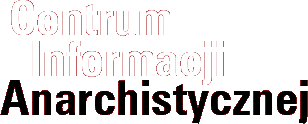Militarism in Venezuela: Warning Signs of Dictatorship?
by Sam Diener
Hugo Chávez has not turned Venezuela into a totalitarian dungeon. In fact, several chavista initiatives have the potential to be models of egalitarian, large-scale, participatory democracy. Nevertheless, Chávez's avowed fondness for the repressive aspects of dictatorships around the world, increasing militarization, and the threat of centralized control of society, could concentrate power in authoritarian hands.
Chávez Proclaims Affinity for Dictatorships
According to the BBC, in July of 2006, Chávez visited the dictator of Belarus, Alexander Lukashenko, and said, "We see here a model social state like the one we are beginning to create."
Chávez personally received the Iranian regime's highest award from President Mahmoud Ahmadinejad in 2006, according to Breitbart.com. Chávez said he "admired the Iranian president for ëhis wisdom and strength.'"
In Libya, Chávez described himself as "bathed in honor" after receiving the Muammar Qaddafi Prize for Human Rights. In his acceptance speech, Chávez said, according to the Weekly Standard in August of 2005, "Like Yasser Arafat, I now have only the revolutionary's gun, since the olive branch has fallen."
In a joint address by Chávez and Castro on Cuban radio and television, as reported by the Associated Press in August of 2005, Chávez said, "People have asked me how I can support Fidel if he's a dictator. But Cuba doesn't have a dictatorship - it's a revolutionary democracy."
Chávez met with and praised Robert Mugabe, the dictator of Zimbabwe, and praised Mugabe's corrupt land reforms in October of 2005, according to Ireland On-Line, "saying the African leader had been ëdemonized' and that similar reforms were being enacted in his own country."
Threats to Unions
According to the newspaper, Diario El Universal, Public Services International, a global union federation made up of more than 600 trade unions, sent Chávez a communication on May 14, 2007: "You stated that in the context of revolution ëtrade unions should disappear.' This is a view that raises concern among journalists and media workers in Venezuela, and causes concern among us too."
Militarization
According to the BBC, "Russia plans to deliver 30 Sukhoi Su-30 fighter jets and 30 helicopters to Venezuela. Venezuela also plans to buy 100,000 Russian-made AK-103 assault rifles and wants to set up factories on its soil to produce Kalashnikovs under license." (editor's note for web version: different sources provide different numbers for the quantity of fighters and helicopters purchased, see for example, an article by the Council on Foreign Relations). In November of 2007, the Russian state's military export company, Rosoboronexport, said they expect to "double or triple" their current $4 billion worth of military hardware contracts with Venezuela, according to Defense Industry Daily.
The BBC reported that Chávez announced in February of 2006 that he plans to increase the size of the military reserves from the current 500,000 to two million (one in five Venezuelan adults), and plans to arm every one of them.
War Resisters International reported in 2006 that all students in Venezuelan high schools will now be required to undergo two years of military training. (Editor's note for web version: The Chavista-controlled Supreme Court rejected two challenges to this mandate brought by the Venezuelan human rights organization, PROVEA.)
Indoctrination in Schools
According to the Associated Press, Chávez announced in November 2007 that all schools, public and private, must follow a government-mandated curriculum based on government-imposed textbooks, or be closed and/or nationalized.
Zulay Campos of the Bolivarian State Academic Commission, which will inspect schools to make sure they follow these mandates, said, "...If they attack us because we're indoctrinating, well yes, we're doing it, because those capitalist ideas that our young people have - and that have done so much damage to our people - must be eliminated."
Conclusion
El Libertario, an anarchist journal in Venezuela, summarizes their assessment of the threats to liberty in Venezuela in an editorial published in November of 2007: "…we know that we are not faced with the military government of Myanmar but rather an expression of neo-militarism as an efficient model for maintaining the despotic domination of Venezuelan society, in the service of... the global energy market."
(Editor's note for web version: thanks to A-infos, "a multi-lingual news service by, for, and about anarchists" for the translation of the El Libertario editorial. For more on the perspectives of El Libertario, please read a fascinating perspective on the Chávez government's refusal to renew the license of RCTV in the spring of 2007, which critiques both the content of RCTV and the government's drive to control the airwaves, english language version printed by the World War 4 Report.)
http://www.peaceworkmagazine.org/militarism-venezuela-warning-signs-dict...






